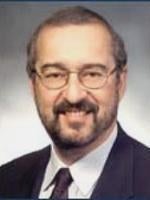The U.S. Court of Appeals for the Federal Circuit, sitting en banc court for the limited purpose of revisiting when claims invoke the means-plus-function language of 35 U.S.C. § 112, ¶ 6 (§ 112(6)) (now § 112(f)) replaced a part of an earlier (November 2014) panel decision (IP Update Vol. 17, No. 12), with the full court speaking only to the means-plus-function issue addressed in the panel decision. Williamson v. Citrix Online, LLC et al., No. 113-1130 (Fed. Cir., June 16, 2015) (en banc). In reversing precedent that created a “strong presumption” that § 112(6) will not govern when the claim drafter has not signaled an intent to invoke the statutory requirements for means-plus-function claims by using the term “means,” the Federal Circuit has now ruled that a claim will be considered a § 112(6) means-plus-function term based on whether the words of the claim recite a specific function that requires corresponding structure when read by a person of ordinary skill in the art.
Background
The claim limitation in issue is “a distributed learning control module” for receiving and relaying communications between presenters and audience members. In the earlier panel opinion, the majority concluded that § 112(6) did not apply — in large part because the claim limitation did not include the word “means.” In its analysis, the panel majority, citing the Federal Circuit’s 2004 decision in Lightning World, explained that “[a] claim expression cannot be said to be devoid of structure if it is used in ‘common parlance or by persons of skill in the art to designate structure, even if the term covers a broad class of structures and even if the term identifies the structures by their function.’”
In dissent, Judge Reyna argued that the claim term “module” was a nonce word that referred to functions that lacked corresponding structure in the specification.
The En Banc Ruling
The full court has now adopted much of the reasoning in Judge Reyna’s panel dissent, but continued to adhere to a burden-shifting framework. Although the en banc decision maintains a presumption against applying the statutory requirements of § 112(6) based on the presence or absence of the word “means,” that presumption is no longer a “strong” one. As the en banc court stated: “[I]n making the assessment of whether the limitation in question is a means-plus-function term subject to the strictures of § 112, para. 6, our cases have emphasized that the essential inquiry is not merely the presence or absence of the word ‘means’ but whether the words of the claim are understood by persons of ordinary skill in the art to have a sufficiently definite meaning as the name for the structure.” If a challenger demonstrates that a claim term fails to recite sufficiently definite structure, or recites a function without an algorithm to perform the function, the presumption against means-plus-function requirements may be rebutted. Essentially, the court went back to the approach it had used prior to Lightning World, abandoning the “strong presumption” that would result in § 112(6) “seldom” being invoked, where there was no recitation of “means,” noting that the now overruled precedent had “the inappropriate practical effect of placing a thumb on what should otherwise be a balanced analytical scale.”
Applying the revised framework, the en banc panel concluded that § 112(6) applied here and the claim term was indefinite due to a lack of structure corresponding to the recited function. The en banc panel reversed course from the November 2014 panel decision, concluding that the term “distributed learning control module” was consistent with traditional means-plus-function limitation treatment because as district court had found, the term “module” was a generic term that operates as a substitute for the word “means.”
Dissent
Judge Newman dissented from the en banc holding, warning that in her view, departure from existing precedent introduced additional uncertainty that would deny patent applicants a choice in drafting claims, complicate examination at the United States Patent and Trademark Office (PTO) stage, invite litigation, and disincentivize innovation. Judge Newman supported her conclusion that the en bancholding reduces stability during claim construction by tracing the legislation history of the Patent Act, the PTO Examination Guidelines, and patent prosecution treatises addressing best practices for claim drafting.
Practice Note: In concluding that “module” is a “nonce word” that can operate as a substitute for “means” and invoke § 112(6), the en banc panel also identified a non-exclusive list of additional terms it considers generic, such as “mechanism,” “element,” and “device.” The court’s apparent willingness to address what it perceives as a “proliferation of functional claiming” will require those drafting claims to pay particular attention to the structure and/or algorithms set forth in the specification or risk a finding of indefiniteness.
It is expected that accused infringers will now be able to challenge many patents where the asserted claims are broad and largely functional — a situation frequently encountered in claims involving software.



 />i
/>i
